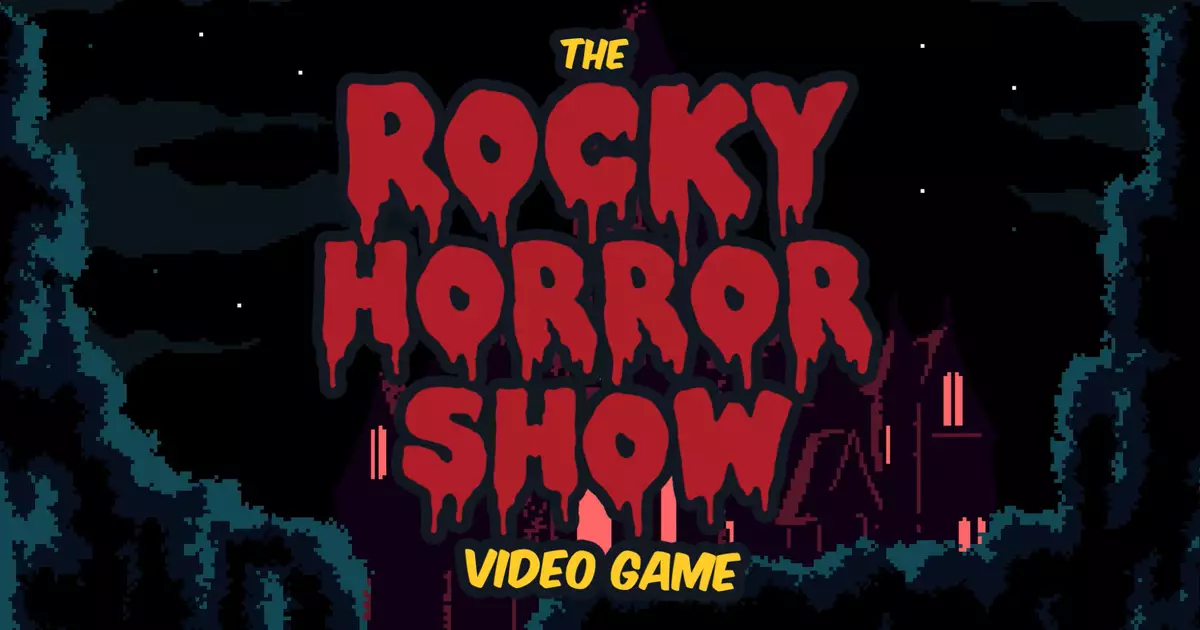The cultural phenomenon that is “The Rocky Horror Show” continues to captivate audiences across generations, resuscitating long-held memories while simultaneously evolving in the digital landscape. A nostalgic personal tale often serves as a gateway for people to connect deeply with this eccentric rock musical, steeped in camp and charisma.
My first encounter with “The Rocky Horror Show” unfolded when I attended a midnight screening, a universally accepted rite of passage for fans. The venue was alive with exuberance; a cavalcade of costumes flourished under the dim lights. Feather boas flew, sequined garments sparkled, and the unmistakable energy of enthusiastic heckling filled the air. If you have ever been part of such an event, you’ll know that it is not merely a film; it is an experience—a shared space where audience interaction amplifies the enjoyment.
The film’s central premise revolves around a couple, Brad and Janet, who stumble upon a peculiar castle during a storm. This theatrical setting is inhabited by the flamboyant Dr. Frank-N-Furter, who embodies liberation and sexual exploration against a backdrop of traditional American values. In the 1970s, this characterization challenged the norm and influenced a generation grappling with questions of identity and sexuality. Watching the film now, questions about its societal reflection remain relevant, emphasizing the timeless essence of the artwork, even though it occasionally straddles the lines of camp and crassness.
The audience participation in screenings becomes an art form of its own. Many come equipped with lines of dialogue to chant at specific moments, digressing into reverential spirit or comical chaos. I remember an exchange from a particular screening that left an indelible mark on my consciousness. As the iconic flying castle scene unfolded, the collective shout of “It’s just a model!” resonated through the theater. In a moment of flippant humor, I responded with a ‘shhhh,’ aiming for a light-hearted riff referencing another comedic classic, only to be rebuffed with disdain by the fellow attendee behind me.
While my intention was to blend cues from different cultural references—a playful homage to Monty Python’s “Holy Grail”—it became an awkward interaction that spiraled into a lasting memory. That moment highlights how deeply interconnected our experiences within fan culture can be—sometimes leading to misunderstandings but often resulting in a community building around shared fandoms.
Fast forward to contemporary times, one can’t help but notice the resurgence of “The Rocky Horror Show” in different media formats, notably video games. Recently, news broke about the upcoming adaptation by FreakZone Games, a retro gaming studio known for its quirky titles. The game promises to merge the game’s fundamental platform mechanics with the beloved music and characters we’ve come to cherish. The tagline reads, “Experience the strange journey of Brad and Janet like never before,” a statement that rings true considering the original work’s transformative aura.
As a long-time fan, I feel an odd blend of excitement and trepidation at the idea of a video game adaptation. The interaction between gameplay and narrative offers a unique opportunity for a new generation to experience the world of Rocky Horror. Will this game encourage a similar collective spirit as films do in community settings? Will it allow newcomers to embrace the oddities of the narrative? Most importantly, will it include that famously whimsical flying castle scene?
In these turbulent times, revisiting “The Rocky Horror Show” serves as a reminder of its liberal creed and the joyous chaos of fan culture. It embodies an unyielding spirit of acceptance, the freedom to express oneself, and perhaps, the quest for belonging. As I prepare for this game to release later this month, the overlapping layers of nostalgia intertwine with the thrill of discovery. Will I finally transcend my sense of adolescent embarrassment? Only time will tell.
Whether you are discovering this cult classic for the first time or engaging with it through new media, the underlying message of defiance, joy, and community prevails. “The Rocky Horror Show” is more than a film or musical; it is a conversation that morphs through time, and we, as audiences and players, are integral to its evolution.

